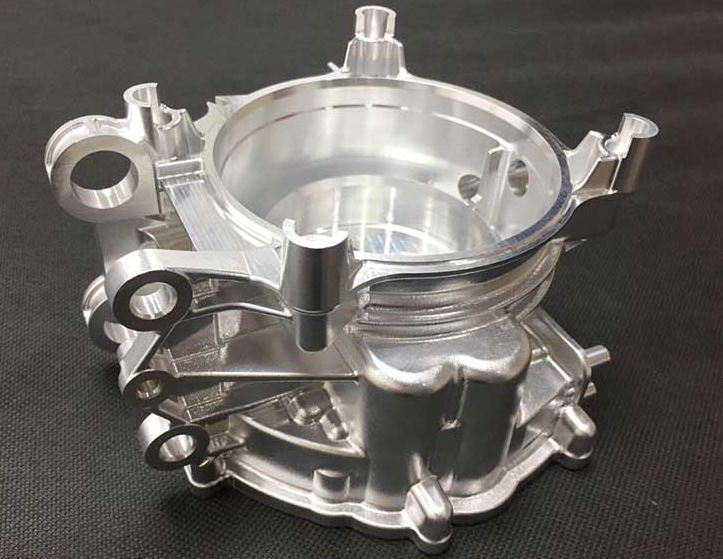Stahl Specialty Company Fundamentals Explained
Stahl Specialty Company Fundamentals Explained
Blog Article
Some Of Stahl Specialty Company
Table of ContentsThe Main Principles Of Stahl Specialty Company Stahl Specialty Company - TruthsIndicators on Stahl Specialty Company You Should KnowIndicators on Stahl Specialty Company You Need To KnowNot known Facts About Stahl Specialty Company
Chemical Comparison of Cast Aluminum Alloys Silicon advertises castability by reducing the alloy's melting temperature and enhancing fluidity during spreading. Additionally, silicon contributes to the alloy's strength and put on resistance, making it useful in applications where resilience is crucial, such as auto parts and engine components.It likewise enhances the machinability of the alloy, making it much easier to refine into ended up items. In this method, iron adds to the overall workability of light weight aluminum alloys.
Manganese adds to the toughness of aluminum alloys and improves workability. It is frequently made use of in functioned aluminum products like sheets, extrusions, and accounts. The visibility of manganese aids in the alloy's formability and resistance to cracking during fabrication procedures. Magnesium is a light-weight aspect that gives stamina and impact resistance to light weight aluminum alloys.
It allows the production of light-weight elements with outstanding mechanical residential properties. Zinc enhances the castability of aluminum alloys and helps regulate the solidification procedure during casting. It boosts the alloy's strength and solidity. It is often found in applications where elaborate forms and fine details are needed, such as ornamental castings and certain auto components.
The Facts About Stahl Specialty Company Uncovered
Because aluminum-silicon alloys have excellent casting properties, high gas homes, straightforward procedures, and excellent deterioration resistance, aluminum-silicon alloys are most typically utilized in the die-casting sector at home and abroad. At the very same time, aluminum-silicon alloys are likewise fairly early and commonly acknowledged alloys developed and used in die-casting. After continuous research study and enhancement, a lot of the present global mainstream aluminum-silicon alloys have been completed and are nothing more than A356, A360, A380, ADC12, B390, and A413.
The primary thermal conductivity, tensile strength, return strength, and prolongation differ. Select ideal resources according to the efficiency of the target item generated. Among the above alloys, A356 has the highest possible thermal conductivity, and A380 and ADC12 have the most affordable. The tensile limitation is the opposite. A360 has the most effective yield strength and the highest possible prolongation rate.

Not known Facts About Stahl Specialty Company
In accuracy casting, 6063 is well-suited for applications where intricate geometries and high-grade surface finishes are critical. Instances include telecommunication enclosures, where the alloy's exceptional formability allows for streamlined and cosmetically pleasing layouts while maintaining structural integrity. In the Lighting Solutions market, precision-cast 6063 elements create stylish and efficient lighting fixtures that need detailed forms and good thermal performance.
(https://www.giantbomb.com/profile/stahlspecialc/)
It results in a better surface area coating and far better corrosion resistance in A360. Furthermore, the A360 displays exceptional elongation, making it suitable for complex and thin-walled components. In accuracy casting applications, A360 is appropriate for sectors such as Customer Electronics, Telecommunication, and Power Devices. Foundries in Missouri. Its enhanced fluidness enables for elaborate, high-precision parts like mobile phone coverings and interaction tool housings.

In precision casting, light weight aluminum 413 beams in the Customer Electronic Devices and Power Equipment sectors. It's generally utilized to craft elaborate components like smart device housings, electronic camera bodies, and power device casings. Its precision is remarkable, with tight tolerances up to 0.01 mm, making sure perfect product setting up. This alloy's superior rust resistance makes it a superb choice for outdoor applications, ensuring long-lasting, durable products in the discussed sectors.
The Stahl Specialty Company Diaries
The aluminum alloy you pick will substantially impact both the spreading procedure and the homes of the final product. Because of this, you must make your decision very carefully and take an enlightened strategy.
Establishing the most ideal aluminum alloy for your application will certainly suggest considering a large range of characteristics. These comparative alloy attributes comply with the North American Pass Away Casting Association's standards, and we've separated them into 2 categories. aluminum foundry. The first classification addresses alloy features that affect the manufacturing procedure. The second covers characteristics influencing the properties of the end product.
The alloy you choose for die spreading straight affects numerous aspects of the spreading process, like how simple the alloy is to function with and if it is click for source prone to casting problems. Warm fracturing, also recognized as solidification breaking, is a normal die spreading defect for light weight aluminum alloys that can cause internal or surface-level tears or splits.
Not known Facts About Stahl Specialty Company
Certain light weight aluminum alloys are extra vulnerable to hot fracturing than others, and your selection needs to consider this. Another common defect found in the die spreading of light weight aluminum is die soldering, which is when the cast adheres to the die wall surfaces and makes ejection tough. It can damage both the cast and the die, so you ought to look for alloys with high anti-soldering buildings.
Rust resistance, which is already a noteworthy characteristic of light weight aluminum, can differ significantly from alloy to alloy and is an important characteristic to take into consideration depending on the ecological problems your item will certainly be revealed to. Wear resistance is another residential property typically looked for in light weight aluminum products and can set apart some alloys.
Report this page